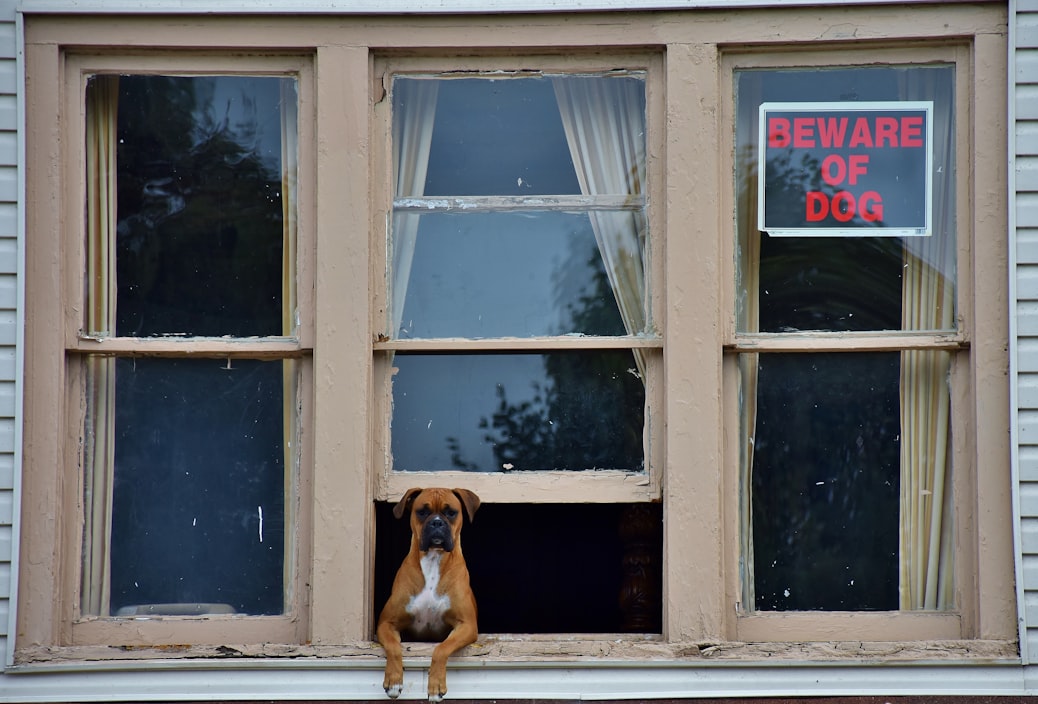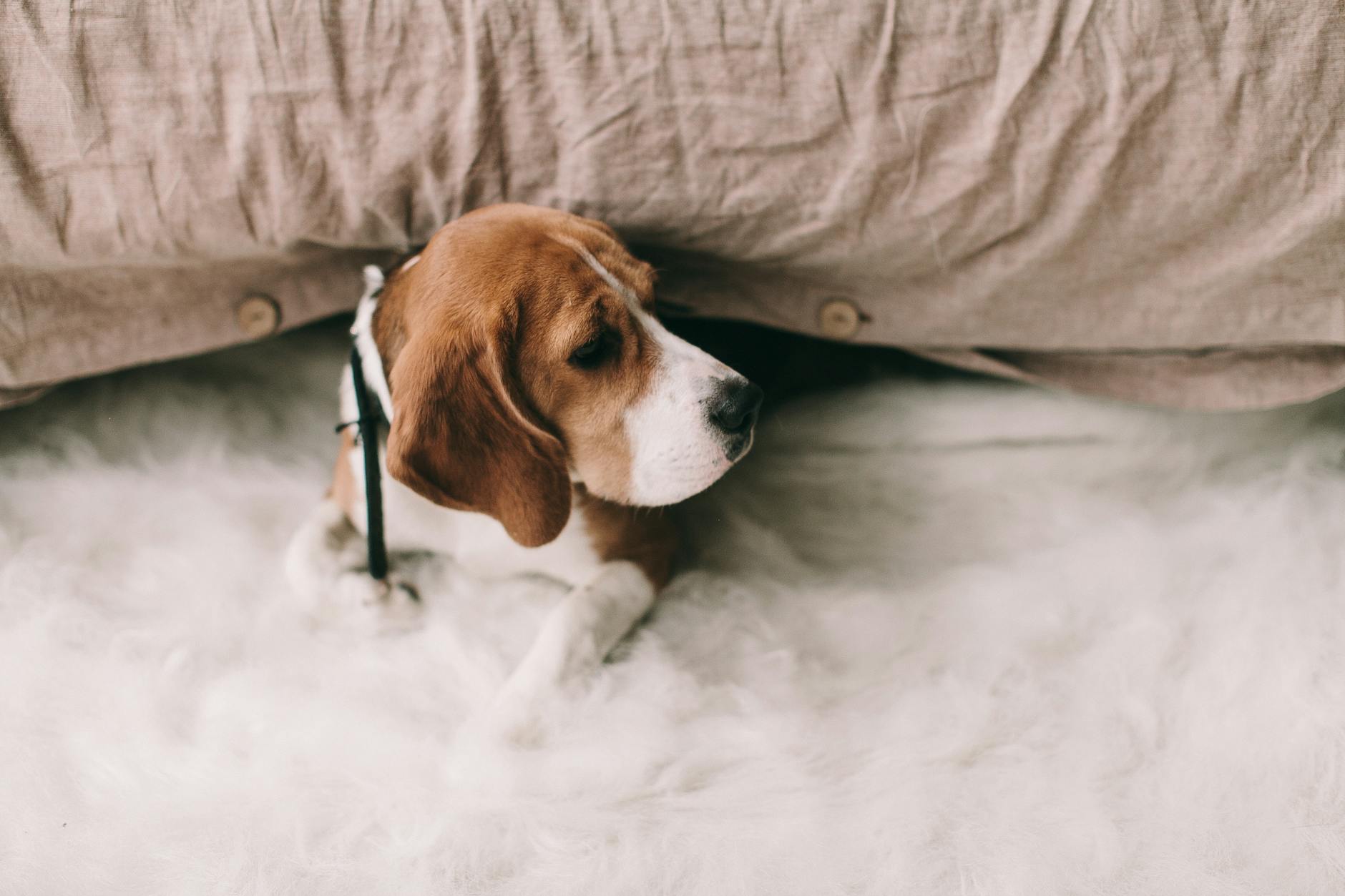A big part of being a good dog owner means that your dog’s actions do not adversely affect other people. Also, you should not be forced out of your apartment or stay home from work. The nuisance barking must end immediately. What should you do? How do you stop a puppy from barking when left alone?

Different Kinds of Dog Barking
It’s essential to figure out what your dog wants; misreading your dog can not extinguish the problem. Before you learn how to stop a puppy from barking when left alone, know why they bark.
1. The Genetically Prone
Almost all terriers and many small dogs, Maltese in particular, Poodles and Schnauzer miniature, fall into this group. These breed types were preprogrammed to bark in motion or noise. Originally developed to warn the farmer of the fox at the hen house, responsive alarm barkers now announce that the phone rings out, neighbors are at home, or that the elevator has arrived.
They need to be taught to restrict their barking. Training them to bark on the command gives you control! You don’t want them to bark; you just want them to be appropriate. Find an acceptable location or time for the yappy dog to bark to the core of his heart.
2. The Alpha
Such barkers are often unneutered males and race forms. They think that they defend their yard, home, and “air-space” generally against intruders like the mailman, a squirrel, a passing dog, or a neighbor. Neutering may detach the intact dog from the overprotective and territorial bottom.
Education will put the instincts of genetically engineered dogs into line. This will help to obscure the dog’s view of the property lines (stock instead of chain-link fence) to discourage him from patrolling the area around the front door or front porch.
Carefully track this type of dog; don’t allow it to bark at home. When you’re not there, if you can’t stop him, you can’t expect anything.
3. The Demanding
This trustworthy soul doesn’t want to be lonely because the fun ends. He is standing at the door and commands you to come back and play with him. Both barking training and interacting toys work well to quiet the dog’s demands, including the citronella anti-bark necklace.
4. The Bored
Sports, horses, and breeds were bred to work during the day. Most owners, pointers, setters, collies, and so on now find themselves, particularly in the urban setting, sadly under-exercised. The dogs must be kept occupied.
Otherwise, frustration is shown with barking (excluding chewing, treading, and digging). Most require a vigorous aerobic exercise for at least two hours a day. If you’re going to be away for a prolonged time (over six hours), an hour of physically challenging and engaging mental fun and games is required.
When you go on the day, you should leave behind a panting, heaving, completely exhausted dog. You can also keep them busy with breakfast from a stuffed KongTM or a food-dispensing toy.
5. The Worried
Some of these dogs are known as toys and miniature breeds. Dogs moved from house to house and shelter are also part of this community. Their stories can include coddling and undue security, a lack of sufficient socialization, or isolation.
Dogs that have never been out of the backyard or that have always been trained in the paper are candidates for anxiety if placed in a new home environment. Such dogs are left behind, often for brief periods, with anxiety over the separation.
The common reactions are scratching, barking, house soiling, and scraping at doors or window sills. Both of these dogs must be appropriately socialized to the world around them. Obedience works with lots of love build trust, creating a more stable dog, a dog with better coping ability.
Reasons Why Your Puppy Is Barking When Left Alone

To know how to stop a puppy from barking when left alone, search first for the trigger, which causes the barking. Opportunities include fatigue, sights, and sounds, and anxiety. Perhaps there was a big transition, including a transfer to a new home or a temporary timetable.
1. Your dog is predisposed to barking genetically.
Most dogs were trained to bark selectively. Over time, human beings have developed particular races with different behaviors, including barking. Dogs use barking to alert us of intruders or alert us of predators while hunting.
They can also bark to help move other animals while they work as puppies. Barking is not a valued feature nowadays, particularly in urban settings. Well, it’s the opposite!
2. Your dog is scared, stressed, anxious, or nervous.
Dogs who are frequently scared reacts by barking in response to sights, noises, or smells. And because our noses and ears are so much less sensitive than our dog, our dog may seem to bark at nothing.
Let’s not ignore scent because dogs judge their environment by smelling. This trigger might almost be anything. It could be something that causes fear because you can hear and not see or feel and don’t smell. Or maybe they were sleeping, and unexpectedly something shocks them.
The response could also be exaggerated if left alone. Puzzle toys can help relax anxious dogs.
3. Your dog’s intruders alert.
Territorial barking happens when the room of your dog (home or property) is threatened. Perhaps the UPS driver dropped the package off at the door, or your power supplier came to read the meter at your house.
4. The dog barks when other dogs bark.
When a dog barks, everyone enters. When there are many dogs in the neighborhood, this may increase the barking capacity.
5. Your dog has anxiety about separation or isolation.
This one can be very worrying. Often but not always, other symptoms are followed, such as smashing furniture or, for example, excretion in the living room.
It may indicate that if you’re not home, your dog will be distressed. If you think that could be the case, we propose a new online course that could be helpful for you.
What You Should Know About Beagle Barking When Left Alone

While your pet Beagle is not used for tracking and hunting, his ancestors’ instinctual training causes this breed to produce a deep bark, also known as hurling in many instances. This dog is, after all, a hound.
The Beagle doesn’t bark or howl for no reason all day, just that the ’cause’ is one that we all don’t agree with.
Like any other dog breed, the Beagle has its reasons to bark, and an owner will take steps to regulate it when he knows why.
The Source of Their Actions
For their loudness, Beagles were renowned. Although incredibly sweet, they’re often unbelievably loud and use their barking to communicate more often than most dogs.
It is essential to know that Beagles are not quiet dogs, and, sadly, they will never be. They are profoundly rooted in their hunting culture, whether you hunt for them or not. The Beagle will be louder than another Beagle, who is about two years old, as she is still learning how to adapt her hunting partner to daily life as a home animal.
Her loud sounds and messy energy will calm down as soon as she realizes she doesn’t have to react to all she discovers. Your Beagle will still have a reason to bark, whether she shows you something or tells you her hunger needs or even anxiety.
You won’t just want to stop your dog’s barking, but help her communicate better and give her what she needs.
You will also have to practice your Beagle more than other races. Dogs are hyper dogs, and exercises help to extract the excess stress from the body.
Dealing With It
Other options include hiring a dog walker or asking a friend, neighbor, or family member for you to do so. You never know before asking; often, a good neighbor’s child would love to spend a small fee walking on your Beagle, and retirees will leap at an opportunity.
Another choice is to search for daycare for doggies. An excellent facility divides dogs in size and provides your Beagle with a friendly environment where you can play and take care of all stressors.
Only one or two days a week can help to reduce the number of stressful days. When you want to spend one day a week, we would recommend a Wednesday, which only offers two consecutive days to a Beagle, that he must be alone.
Beagles are extremely smart in everything they do. They also tend to bark and find something significant to alert their parent, even though it doesn’t appear at the moment. Through learning to live in the wild instead of at home, your dog will soon learn that barking is not always required.
Effective Ways to Stop a Puppy From Barking When Left Alone

You assume that all goes well with your dog training along with your link to your “companion,” until you have an ongoing conversation, or worse, an unanswered message, causing you to know your dog barks when you leave home alone. You do not want to annoy your neighbors, aside from the fact that you want to get to the bottom of why your dog barks.
Here’s how to stop a puppy from barking when left alone:
Become the Leader of the Pack
Dogs are packs of animals by definition. Your dog has progressed in the wild wolves’ packs, but they are still part of a social group that includes you and your family. Many people ask the pack leader, and if you don’t properly train your dog, your dog will probably believe that he or she is the pack leader.
How exactly does your dog bark have to do if he is left alone? Okay, as the pack leader is going to have to keep his bunch, even as his bunch doesn’t deal with him, he ‘s getting frustrated, and he’s calling his bunch as he can by barking. Therefore the solution is for someone else to take up the position of pack leader, which would be you as your dog’s owner.
Pent Up Heat Recovery Exercises
A brilliant idea would be if you left your dog alone in a healthy state. One way to do it will be to figure out your dog before you left home. It could be a really long stroll or just a few workouts in the backyard that will emotionally exhaust your dog.
Beagles are more interested in their “family pack” than many other races. When you leave your Beagle alone for long periods, he will be in trouble. Give your animal a short stroll, a run around the field, or a game of frisbee to burn this surplus of energy before going out to work. It reduces your anxiety and keeps your house in one piece.
Make Sure That They Are Content
Whether you are like the majority of people, you have found a place in or out of your house that suits you best, where your dog will stay. You may be fortunate now and have found a location in which the dog is always happy.
It may not be the case, and this is precisely why your dog will bark and think about it when you leave it alone. It might be worth exploring whether other places in the house are more suitable. Choose inside instead of saying outside. Or use a smaller bath instead of the primary area.
Feed and Provide Water For Your Dog
Your dog should receive water 24 hours a day. It’s better to feed the dog before you leave them at the house. It gives them a feeling of satisfaction. It stops them from being upset that when you’re not outside, you should continue your routine.
Provide Toys, Bones, Etc.
There is now a vast range of toys we can give to our dog to keep them entertained. You can find items such as “Kongs,” which can be packed with different dog-friendly foods to keep the dog “happy” for a while. You might also give the dog various bones to chew on.
Because a dog enjoys them, they must be watched when consuming them if the bones break and attempt to ingest them and probably chock. You’ll have the power to remove the bone from the dog’s throat while you’re there. When you’re not there, they might be killed.
Final Words
When left alone, dogs bark for several different purposes. For some, it is a sign of profound fear known as the “separation anxiety.” For others, they are bored and find a way to make a lot of noise.
Other dogs are very territorial and listen to noise outside and feel obliged to defend the house from intruders. Training a dog not to bark if left alone partly depends on how the dog barks and reduces the risk of factors triggering the dog’s bark.


